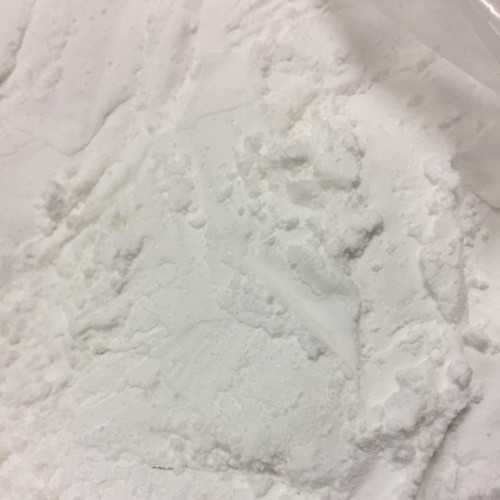Phenacetin Powder (8)
Phenacetin (C10H13NO2), N-(4-Ethoxyphenyl) acetamide, is a drug that saw widespread application for nearly a century in many over-the-counters as a remedy for medication pain and fever. The 82 MHz spectrum of a 6% ( w/w; 0.5 M) solution of Phenacetin powder in CDCl3 acquired using the Thermo Scientific picoSpin 80 NMR spectrometer.
Phenacetin is a pain-relieving and fever-reducing drug, which was widely used following its introduction in 1887. It was withdrawn from medicinal use as dangerous from the 1970s (e.g, withdrawn in Canada in 1973, and by the US Food and Drug Administration in 1983). Phenacetin powder has been used as a cutting agent to adulterate cocaine in the UK and Canada, due to the similar physical properties. In the UK, benzocaine, lidocaine and Phenacetin UK are the most common chemicals used to “cut” illegal drugs, especially cocaine. This is because these chemicals mimic some of the effects, as well as resembling the drug in appearance, allowing a significant increase in adulteration of the illicit drug than would be possible with an inert substance such as glucose. Due to its low cost, Phenacetin powder is used for research into the physical and refractive properties of crystals. It is an ideal compound for this type of research.
Chemical name: Phenacetin (N- (4-Ethoxyphenyl) acetamide)
Concentration: 6% (w / w; 0.5 M) in CDCl3
CAS: 62-44-2
Field: 82 MHz
Nuclear testing: 1H
Applications: Pharmaceuticals, forensics, bench analysis, productivity
-
250g phenacetin$USD 39.85
-
1kg phenacetin$USD 119.56
-
2kg phenacetin$USD 199.27
-
3kg phenacetin$USD 265.69
-
4kg phenacetin$USD 332.11
-
5kg phenacetin$USD 398.53
-
10kg phenacetin$USD 730.65
-
25kg phenacetin(next day delivery)$USD 1461.29
Phenacetin, and products containing Phenacetin powder , have been shown in an animal model to have the side effect and after-effect of carcinogenics. In humans, many case reports have implicated products containing phenacetin powder in urothelial neoplasms, especially urothelial carcinoma of the renal pelvis . Phenacetin UK is classified by the International Agency for Research on Cancer (IARC) as carcinogenic to humans. In one prospective series, phenacetin was associated with an increased risk of death due to urologic or renal diseases, death due to cancers, and death due to cardiovascular diseases . In addition, people with glucose-6-phosphate dehydrogenase deficiency may experience acute hemolysis, or dissolution of blood cells, while taking this drug. Acute hemolysis is possible in the case of patients who develop an IgM response to Phenacetin powder leading to immune complexes that bind to erythrocytes in blood. The erythrocytes are then lysed when the complexes activate the complement system.
Chronic use of phenacetin powder is known to lead to analgesic nephropathy characterized by renal papillary necrosis. This is a condition which results in destruction of some or all of the renal papillae in the kidneys. It is believed that the metabolite p-phenetidine is at least partly responsible for these effects. One notable death that can possibly be attributed to the use of this drug was that of the aviation pioneer Howard Hughes. He had been using Phenacetin powder extensively for the treatment of chronic pain; it was stated during his autopsy that Phenacetin UK use may have been the cause of his kidney failure.
Phenacetin is one of the first commercially produced synthetic pharmaceuticals and the first non-opioid analgesic; it was widely distributed in APC cold tablets since it was frequently mixed with aspirin and caffeine. This compound is representative of a class of acetanilide-based analogues known to have analgesic and antipathetic properties. Other compounds within this class are paracetamol (acetaminophen), lidocaine and highly potent opioid analgesic acetylfentanyl. Like the parent compound acetanilide, phenacetin is metabolized into paracetamol in the human body. Phenacetin was first withdrawn from market use in Canada in 1978 as it was found to be carcinogenic and cause kidney damage, with most countries withdrawing its use in over-the-counter medications in the subsequent years. Drugs utilizing Phenacetin powder were reformulated with paracetamol, which was found to have similar pain and fever reducing properties but is non-carcinogenic. Currently Phenacetin UK has no legal use, though is used illegally in some countries as a cutting agent for cocaine.
- Company info
- About US
- Send Inquiry
- News
- FAQs
- sitemap
- User Center
- Tracking Order
- Forget Password
- My Orders
- My Account
- Register
- Join our community
Copyright © 2020-2023 BenzocaineSupplier.com All Rights Reserved.


